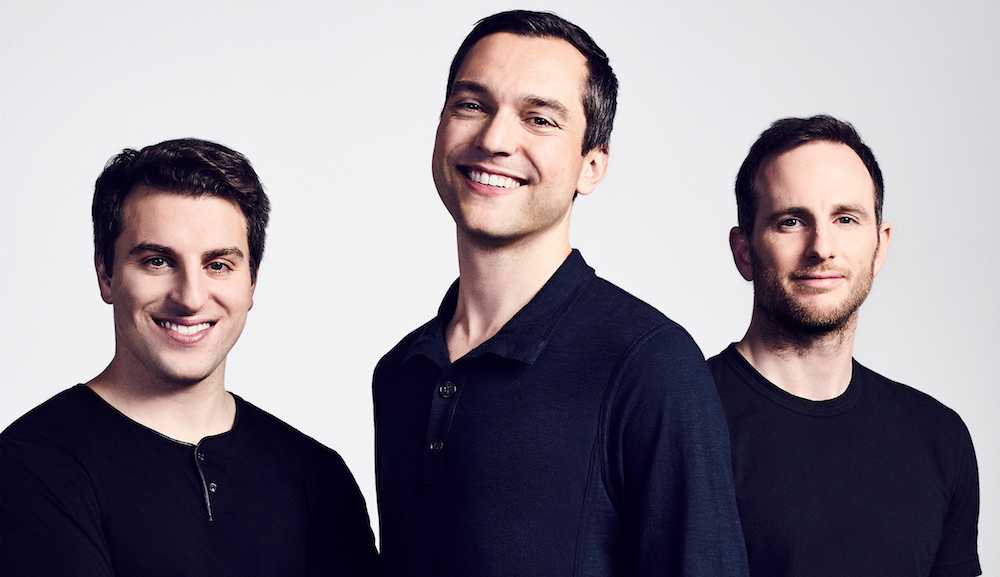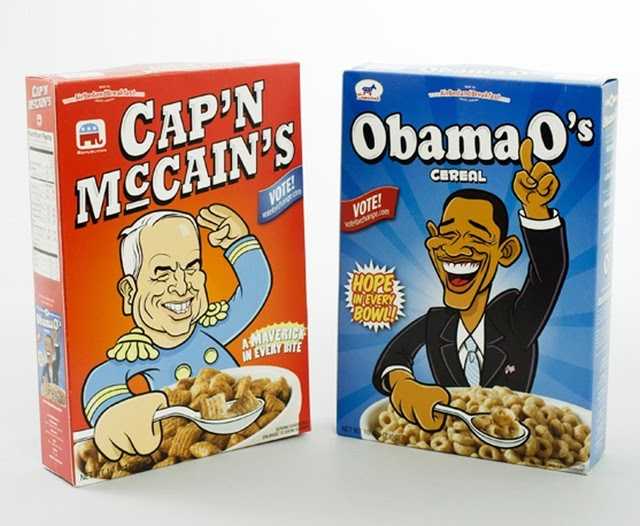Airbnb: From selling Obama O's to affording rent, to becoming a $31 billion company!
If you're from this planet and younger than 70, you know about Airbnb.
But do you know how it became a billion-dollar company?
From struggling to sell their concept, to becoming a threat to organized tourism -
Airbnb never fails to rise to the occasion!
This is the story of how two unemployed people changed the entire hospitality industry, as well as the way we travel - forever!
Air Bed and Breakfast Hustle
In 2007, Brian Chesky and Joe Gebbia moved from New York to San Francisco. Unemployed and struggling to afford rent, they needed some extra bucks, but they couldn’t just go sell lemonade on the sidewalk - they wanted sustainable income.
One morning, they discovered that an Industrial Design conference was taking place in SF, attracting thousands of visitors. The conference attendees booked every single hotel room the city had to offer, and that’s when it hit them: they could earn some extra cash by offering alternative hosting!
That's how Air Bed and Breakfast was created: Brian and Joe bought a few air beds and offered visitors a place to crash and eat in the morning. The service was not expensive - $80 per night and they had a catchy slogan: 'forget hotels!'
You may think this was an insane idea, but it worked. Realistically, would you pay $80 to sleep on an airbed and eat breakfast prepared by two weird guys? No?
First Customers
Luckily for Brian and Joe, not everyone thought this way.
Their first three guests were a man from India, a woman from Boston, and a father of four from Utah. Hosting them was a real boost: Air Bed and Breakfast could actually become something! Soon after this initial success, they expanded their team with one more person - Nathan Blecharczyk. He was a technical architect fresh out of Harvard, there to help them with their first major challenge: a website.
Solving the First Challenge Thanks to Obama
The thing with the website was that it had only two users - and Brian was one of them.
So, they changed the website to attract more customers - and it worked - somewhat.
Customers did come, but not because of the website.
In 2008, the Democratic National Convention was taking place in Denver. The situation was similar to the previous year’s conference: all hotels were booked out, and over 20,000 people were coming.
The guys figured it out! They couldn’t host all these people, not even 10% of them, as they couldn’t buy and fit so many airbeds in such short notice - but they could do something else!
Local Obama supporters should host other Obama supporters - for money - through their platform!
But, would this bring them enough money to pay an enormous pile of late bills and rent? Probably not. Luckily, Brian had a silly revelation: although people would be sleeping in other people’s homes, they could still receive breakfast from Air Bed and Breakfast. It was going to be themed cereals. Obama O's and Cap'n McCains. They designed the boxes, bought the cheapest possible muesli, and sold them as convention breakfast.
It was a major success: more than 600 people booked stays in Airbnbs!
One Step Forward, Two Steps Back
Although the site launch was successful, the guys experienced some setbacks too: they couldn’t find any investors for their project.
They searched for investors for weeks before the convention, but most of them just ignored their emails. One guy agreed to meet them, ordered a smoothie, and left in the middle of the meeting. Another guy met with them, but the site crashed in the middle of the meeting, turning it into an unsuccessful pitch. To make things even worse, a week after the convention, bookings were back to 0.
If there was a convention every weekend, they would have a perfect business. But what now?
They had a good website which no one was visiting, because there were no properties listed, and no one was listing properties, as there were no tourists. It was like a social experiment, and no one wanted to be a guinea pig.
How to Fund a Startup Nobody Wants to Fund? Cereals!
Time was passing by and unpaid rent and bills were slowly piling up again. The only thing left that could save them? Their quirky cereals!
The guys redesigned the boxes and made the most logical step: called all local cereal companies. Cereal companies were interested, but only if they'd pay them a $250,000 deposit, which was impossible!
Luckily they met one guardian angel - a design school alumni who had his own print shop. He agreed to print 1000 cereal boxes for free, and if their plan worked, they'd give him royalty. It was a fair deal.
At home, between the sessions of gluing and filling the boxes, Brian couldn't but ask himself: Did Mark Zuckerberg glue boxes before starting Facebook? Was this good or bad?
As we all know now - it was very good. They mailed these cereal boxes to the press and ended up selling more than 30,000 of them over the next few weeks! This way, the guys 'baked their own bread - and created Airbnb's first funding round!
Alt text: Obama-O's-and-Cap'n-McCain's-cereal-boxes
Cereal Saves the Day Again: Becoming a Startup
A year later, the guys were broke again so they decided to join the Y Combinator. Brian and Joe had an exciting meeting with Paul Graham, who hated their startup idea and tried to convince them to open a bank instead.
He asked: 'Are people using Airbnb?' Brain replied: 'Yes, they are.' Paul’s reaction was: 'What’s wrong with them?'
Just when Joe and Brian were about to walk themselves out after one more failure to find investment, they handed Paul a box of Obama O’s. He was curious to hear the story behind these cereals, and when they explained he said: ‘If you were able to convince people to buy a $4 box of cereals for $40, maybe you can convince them to stay in other people’s rooms! You’re in!’
Now, they were a startup, and they spent the initially-received $20,000 to go back to New York and ask their customers what they think. Why do they use, or not use Airbnb?
They found out that people didn’t like the photos on the website - the rooms seemed nasty and unattractive.
It was an easy challenge, so the team just bought a professional camera and took some long trips, going from one host to another to take photos of their properties. This way, they improved the looks of the properties on the website, so they seemed more attractive to future visitors.
In 2009, they were invited to join the Y Combinator's winter training session, which was a huge boost for both their business and their morale! Paul Graham even tried to convince the venture capitalist Fred Wilson to invest in Airbnb. But after consecutively failing to convince him several times, Fred presented his decision that would haunt him as a VC: he decided to pass, as his team saw this as way too unconventional.
After a couple of years, he had a chance to meet the Airbnb team. He asked them to give him a box of cereal, to remind him of the life-changing mistake he had made.
Progressing to Billions of Dollars
Visiting their users in New York was a huge bonus for the startup. It gave their website a lot of traction, which meant one thing: more growth!
So naturally, their focus changed: from shared spaces only - to all types of accommodation!
2009 was a defining year for the company: they changed their name from Air Bed and Breakfast to Airbnb, jumping to nearly 10,000 registered users.
In the next 5 years, they had 10 funding rounds from more than 20 investors, some of them coming from startup accelerators like Sequoia Capital and Y Combinator, while some came from notable investors such as Ashton Kutcher and Jeff Bezos. By 2015, Airbnb reached their first billion in revenue, having received $1.5 billion in funding!
Of course, money was important, but something even more significant happened in 2014: San Francisco implemented a new law - the Airbnb law! They were so popular and widespread, they needed to be recognized by the law! Talk about a threat to conventional hospitality businesses!
Airbnb Today
By 2020, Airbnb has had 7 more funding rounds, all accounting in billions of dollars. On top of that, their yearly revenue reached $2.6 billion before plummeting due to COVID-19. They have a cutting-edge accommodation search website, and they have significantly widened their services: rooms, flats, houses, hostels, hotels…
From cheap to luxurious, you can find anything you want on Airbnb. Besides accommodation, they also offer to organize experiences. For example, you can pay a small amount of money, to go to a cooking workshop in the town you’re visiting, to experience local tastes.
The story of Airbnb teaches a very simple lesson: if you want to reach the deepest points in the vast ocean of online business, you have to stumble on some rocks first - even if it means selling cereal boxes!
Just like with many other businesses in 2020, AirBnb’s market valuation has significantly dropped, since the coronavirus outbreak has halted all travels. Unfortunately, this all interrupted their plans to go public. But don’t worry about them: AirBnb’s co-founders have already demonstrated they’re capable of a myriad of creative solutions to any challenges that may arise.
No doubt - they'll swim out of this one too!


